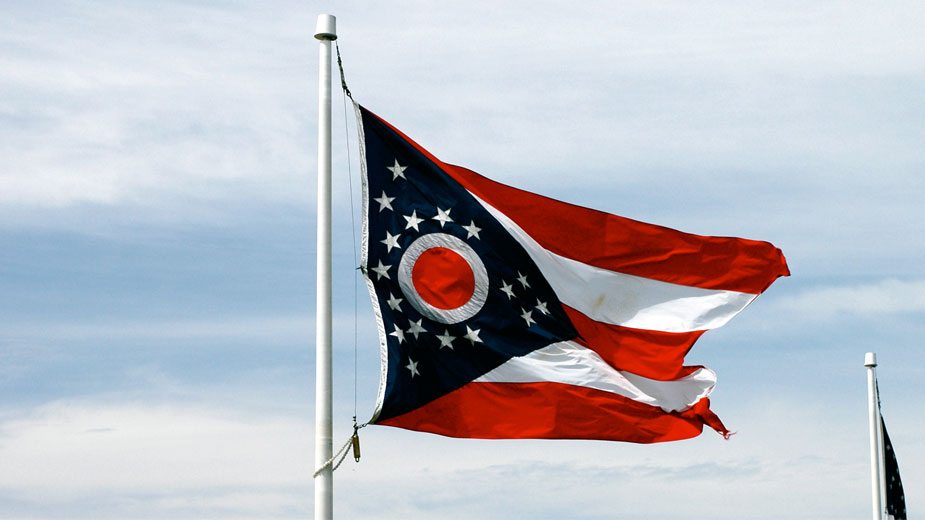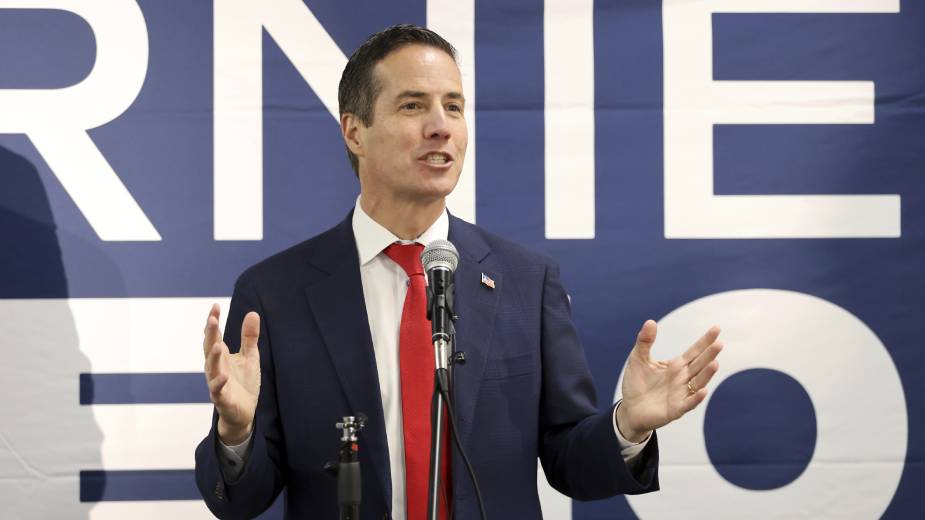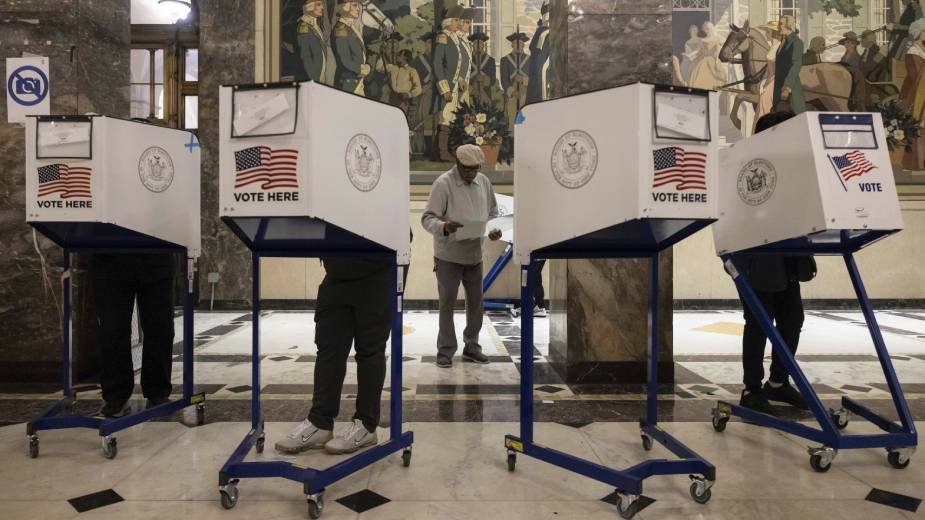Ohioans Improvise while They Hope for End to COVID-19
By Amanda Garrett, Akron Beacon Journal
It was just a little more than 24 hours after President Donald Trump left Walter Reed hospital after falling ill with COVID-19.
Trump — who received experimental drugs not available to other Americans infected with the disease — continued to downplay the pandemic, telling Americans “don’t let it dominate your lives.”
Yet in Northeast Ohio, where five strangers met to talk politics in a Your Voice Ohio Zoom meeting Oct. 6, COVID-19 loomed over everything.
For the five voters, the virus had overtaken their lives in large ways and small, whether they wanted it to or not:
Foregoing work
One Cleveland woman who didn’t want to be named in this article said she accepted an option to skip work this year at Cleveland Browns stadium because, at 62, she thought it was too dangerous for someone her age with underlying health conditions to deal with the public.
But that choice came with a price, as she and her husband, who continues work as an essential employee, now struggle to make ends meet.
Many in One House
Miguel Arriola continues to scramble to help his immigrant family, where several generations from different family branches share housing.
They can’t afford separate housing for everyone, he said, so they had to figure out the best way to shield the vulnerable inside, while others go out to work, possibly bringing the virus home.
Arriola not only felt responsible for family in Cleveland, but for family in Nashville, where he built a plexiglass wall so he could at least see his father during visits.
COVID Comes Close
Sheilah Smith watched from afar as several people at her church, along with her nephew and his wife, fell ill with COVID-19, but recovered. But a few days before the Zoom meeting, she learned her ex-husband died from the disease, prompting her to be even more vigilant about protecting herself.
“I really can’t believe he died, but he did,” she said.
Building a New Business
Allan Brown watched his father’s cleaning business spiral down when several Greater Cleveland YMCAs canceled contracts during the pandemic, slashing his income in half.
Brown, who works from home writing music compositions, was putting in extra hours on the side trying to help his parents launch a new business selling things on Amazon during the pandemic.
They Have Each Other
Faith Williams, a single mother with an autoimmune condition, is new to Ohio and was just feeling comfortable making friends in her church and community when the pandemic struck. She’s so worried about what would happen to her 12-year-old son if she fell ill with COVID-19 that she forbade him from playing outside and the two spend most of their time at home. That, she said, has taken a mental health toll on both of them.
Watching Mom’s Dog
Susan Mykrantz, who lives in Wayne County, hasn’t hugged her mother since March 7. Her mom went to a rehab center to recover from a broken elbow and compression fracture in her back just before the pandemic hit.
Mykrantz was able to have a “window visit” with her mom on Labor Day, but said it wasn’t the same, adding that her mother missed her miniature dachshund, who Mykrantz is caring for.
“She doesn’t care if she sees me or not, but she really wants to see her dog,” Mykrantz said, laughing.
Looking for an End
When news broke a few days before that Trump was infected with COVID-19, Smith said she hoped the president might rethink how the U.S. tackles the pandemic.
“I really thought it would change him. To see that it hasn’t made any difference, it’s just surreal,” Smith said.
She told the group she’s a a pro-life, pro “Biblical marriage” conservative.
“You know, but at what expense do you hold onto this when the world is going to hell in a handbasket?” she asked. “It’s like selling your soul to the devil.”
This year, after watching how Trump handled both the pandemic and issues of race and racial justice, Smith, who is Black, said she had some political disagreements with some of her white evangelical Christian friends. One woman broke off their friendship entirely.
“I miss her. It still hurts,” Smith said, adding that she hoped to rekindle their friendship after the election.
Others in the group also fretted over myriad issues, particularly the economy. But everything circled back to the pandemic. They agreed little was going to improve until COVID-19 was under control.
“I just want somebody to tell me things are going to be OK,” Mykrantz told the group, as her mother’s dachshund popped in and out of the meeting.
“You’re right. Exactly,” agreed the Cleveland woman who works at Browns stadium.
“Even if it’s people on this panel saying, ‘You know what, it’s going to be OK, we’re going to get through this,’ ” Mykrantz said.
“I think there are so many Americans looking for that same thing,” Arriola said.
“We can say the same thing, but it doesn’t mean it’s going to happen,” the woman who works at the stadium cautioned. “But I’ll tell you, Susan, it’s going to be OK, honey, it’s going to be OK. If we keep our distance and keep our masks on, we’re going to beat it.”
After a few minutes more of discussion, Smith said reassurances that the future would be brighter were not enough. She wanted something more.
“I don’t really want somebody to tell me it’s going to be OK,” she said. “I want someone that knows what to do to make it OK.”
The group of strangers all nodded and agreed again.
Amanda Garrett is a reporter for the Akron Beacon Journal and can be emailed at [email protected].
Want to volunteer for a future dialogue and receive $125 for two hours? Register at the Your Voice Ohio Election 2020 website.
About this project: This is one in a series of stories on issues Ohioans say are most important in this election year. More than 50 news outlets are collaborating in the project under the umbrella of Your Voice Ohio, the nation’s largest sustained, statewide news media collaborative. In five years, Your Voice Ohio has brought more than 100 journalists together with more than 1,300 Ohioans for discussions on addiction, the economy and elections. Your Voice Ohio is managed and coordinated by the Jefferson Center for New Democratic Processes, a nonpartisan, nonprofit civic engagement organization. The project is funded by the John S. and James L. Knight Foundation, the Democracy Fund and Facebook. The Jefferson Center for New Democratic Processes designs and facilitates the dialogues and digital forums. Retired Akron Beacon Journal managing editor Doug Oplinger directs the media work and can be reached at [email protected].
Other Stories in This Series
Oct. 22: Ohioans Retreat into Safe Groups, Crave Postelection Unity
Image: Jeff Kubina / CC BY-SA (https://creativecommons.org/licenses/by-sa/2.0)
Copyright 2024 The Business Journal, Youngstown, Ohio.



